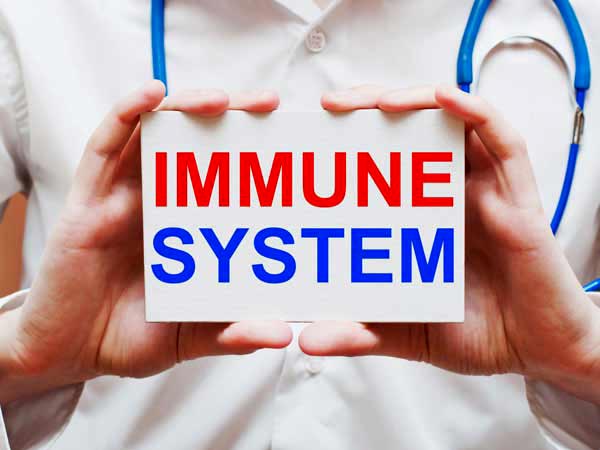Just In
- 1 hr ago

- 4 hrs ago

- 5 hrs ago

- 7 hrs ago

Don't Miss
- Sports
 IPL 2024: CSK coach Stephen Fleming talks about space 'owned' by MS Dhoni, calls 42-year-old heartbeat of team
IPL 2024: CSK coach Stephen Fleming talks about space 'owned' by MS Dhoni, calls 42-year-old heartbeat of team - Finance
 Elon Musk Postpones India Trip, Tesla's Indian Market Entry Delayed
Elon Musk Postpones India Trip, Tesla's Indian Market Entry Delayed - News
 US Links 'Blue Whale Challenge' To Indian Student's Death In Boston | What Is The 'Suicide Game'?
US Links 'Blue Whale Challenge' To Indian Student's Death In Boston | What Is The 'Suicide Game'? - Movies
 Love, Sex Aur Dhokha 2: The REAL Reason Of Rajkummar Rao And Nushrratt Bharuccha Not Being Part Of The Film
Love, Sex Aur Dhokha 2: The REAL Reason Of Rajkummar Rao And Nushrratt Bharuccha Not Being Part Of The Film - Technology
 Best Noise-Cancelling Earbuds Under Rs 5,000: CMF Buds Pro, Redmi Buds 5, Realme Buds Air 5, and More
Best Noise-Cancelling Earbuds Under Rs 5,000: CMF Buds Pro, Redmi Buds 5, Realme Buds Air 5, and More - Education
 UPMSP Class 10 and 12 Results 2024 Released Today, Check the Details Here
UPMSP Class 10 and 12 Results 2024 Released Today, Check the Details Here - Automobiles
 Tesla CEO Elon Musk's Much-Awaited Visit to India Deferred, Leaving Questions Unanswered
Tesla CEO Elon Musk's Much-Awaited Visit to India Deferred, Leaving Questions Unanswered - Travel
 Journey From Delhi To Ooty: Top Transport Options And Attractions
Journey From Delhi To Ooty: Top Transport Options And Attractions
Nutrients To Strengthen The Immune System
There are several nutrients which helps boost our immune system. This article explains about few of them. Read through.
Leading a healthy lifestyle might help to give a boost to your immune system, the body's defense against foreign infections, microorganisms and viruses that cause sickness.
While physical exercise, a healthful weight, stopping smoking and good blood pressure levels give your resistance system a well deserved boost, eating diverse, healthful foods also helps to keep the defense mechanisms on guard.
Vitamin E, a fat soluble nutrient, ensures that cells of your resistance system function at their absolute best. As a natural antioxidant, vitamin E shields lipid membranes from oxidation by free radicals, volatile substances which could cause injury to your cells.

Due to its antioxidant properties, vitamin E might protect you against cancer, heart troubles and atherosclerosis, the accumulation of fatty materials in your artery walls which block the flow of blood. You may get enough vitamin E from vegetable oils, broccoli, almonds and peanut butter.
Consumption of vitamin C enhances antimicrobial and natural killer cell activities and raises the generation of lymphocytes, a kind of white blood cell that recognizes and eliminates invasive pathogens posing an important threat to your body.

A diet full of vitamin C substantially increases chemotaxis, the movement of white blood cells called neutrophils to sites of infection. You may get your vitamin C naturally from foods like cantaloupe, broccoli, kiwi, orange juice and red peppers.
Carotenoids exert numerous positive effects on your immune system. Additionally, it encourages the multiplication of lymphocytes. They also improve the production of cytokines, proteins that determine immunity and irritation.

Innate immunity works by preventing harmful materials from entering the body with the help of mucus, stomach acid and enzymes in tears and skin oils. In comparison, adaptive immunity develops through exposure to numerous antigens, substances on the surface of microorganisms and viruses.
Your body builds up antibodies and becomes immune to the disease. Vitamin D plays a critical role in supporting both innate and adaptive immunity. Diet sources of vitamin D include fortified juices, dairy, salmon and yogurt.
-
 healthExclusive: New Year 2024: Let's Understand The Value Of Nutrition Resolution And Set Realistic Goals!
healthExclusive: New Year 2024: Let's Understand The Value Of Nutrition Resolution And Set Realistic Goals! -
 healthCan Eating These Foods Trigger Tumour Growth?
healthCan Eating These Foods Trigger Tumour Growth? -
 healthWeight Loss: 4 Habits That Make You Gain Weight And Not Burn Fat
healthWeight Loss: 4 Habits That Make You Gain Weight And Not Burn Fat -
 healthBudget-friendly Nutrition: How to Maintain a Healthy Diet without Breaking the Bank?
healthBudget-friendly Nutrition: How to Maintain a Healthy Diet without Breaking the Bank? -
 healthIndian Cuisine: A Natural Solution To Chronic Pain Through Nutrition
healthIndian Cuisine: A Natural Solution To Chronic Pain Through Nutrition -
 healthNational Nutrition Week 2023: Did You Know That These Nutrition Deficiencies Can Lead To Death?
healthNational Nutrition Week 2023: Did You Know That These Nutrition Deficiencies Can Lead To Death? -
 healthTeachers' Day 2023: Healthy Lunch Box Recipes For Busy Teachers in India
healthTeachers' Day 2023: Healthy Lunch Box Recipes For Busy Teachers in India -
 healthIs Dal Good for Weight Loss?
healthIs Dal Good for Weight Loss? -
 healthOnam Special: Traditional Superfoods To Try
healthOnam Special: Traditional Superfoods To Try -
 healthTo Peel Or Not To Peel: Should You Peel Carrots Before Eating?
healthTo Peel Or Not To Peel: Should You Peel Carrots Before Eating? -
 healthHealth Benefits Of Noorjahan Mango: This MP Fruit Cost You Upto Rs 1000 Per Piece
healthHealth Benefits Of Noorjahan Mango: This MP Fruit Cost You Upto Rs 1000 Per Piece -
 healthDiabetes: Summer Nutrition Tips For Diabetes Patients
healthDiabetes: Summer Nutrition Tips For Diabetes Patients


 Click it and Unblock the Notifications
Click it and Unblock the Notifications



